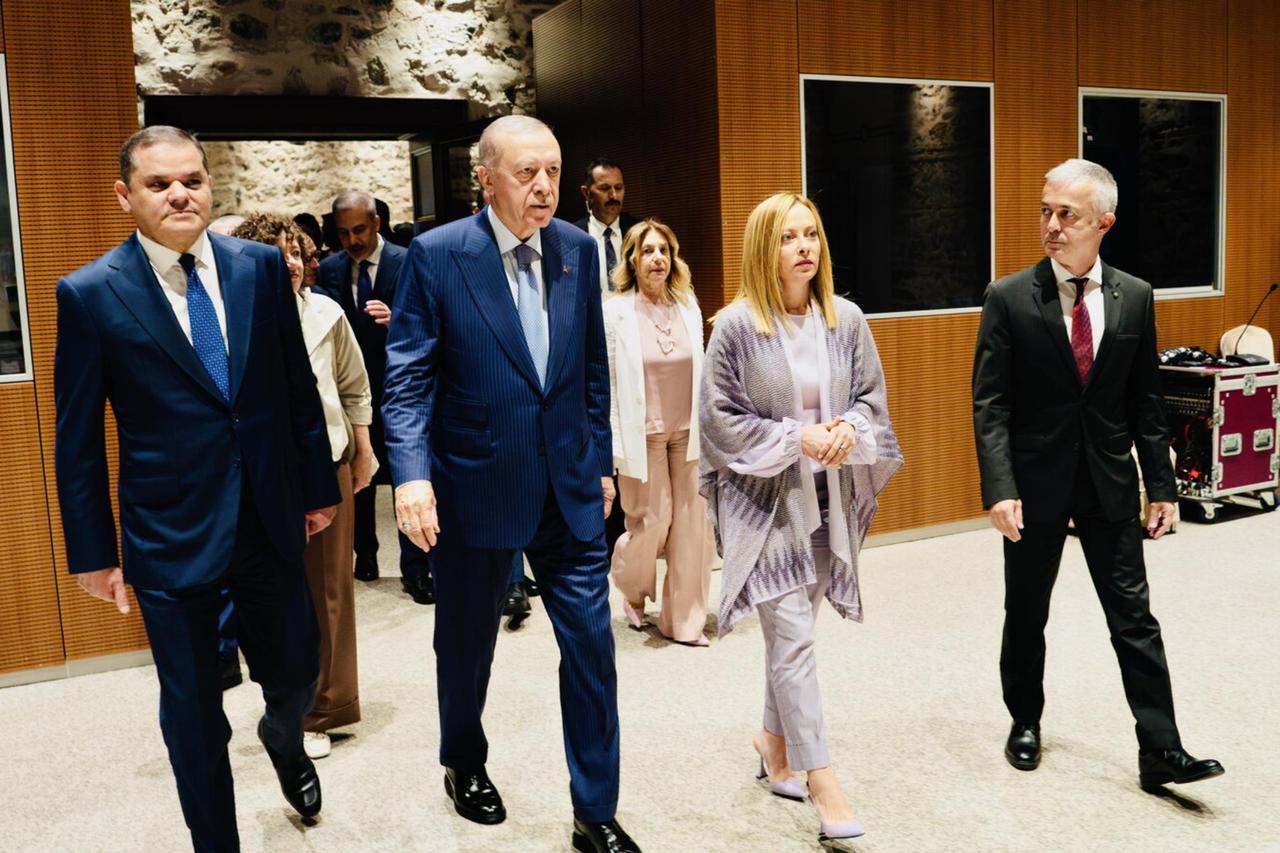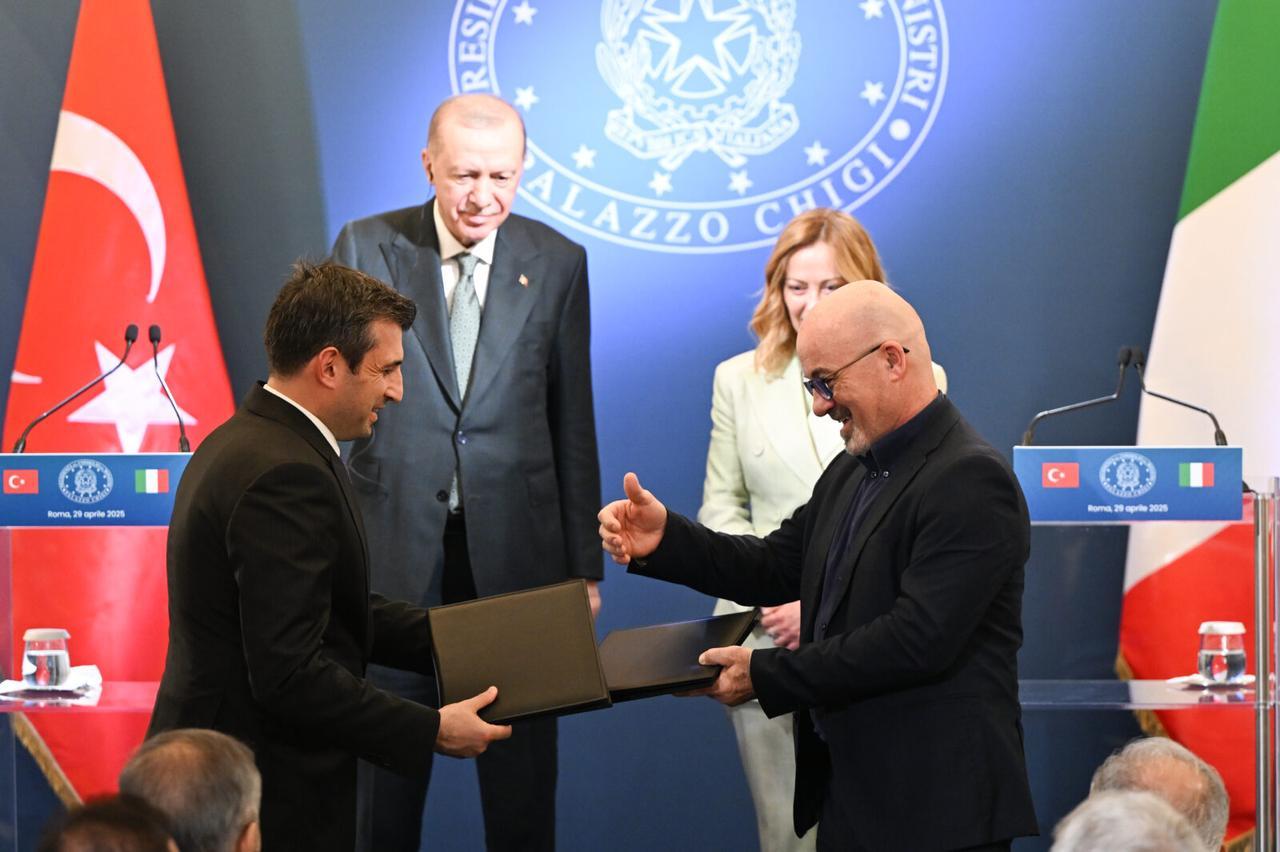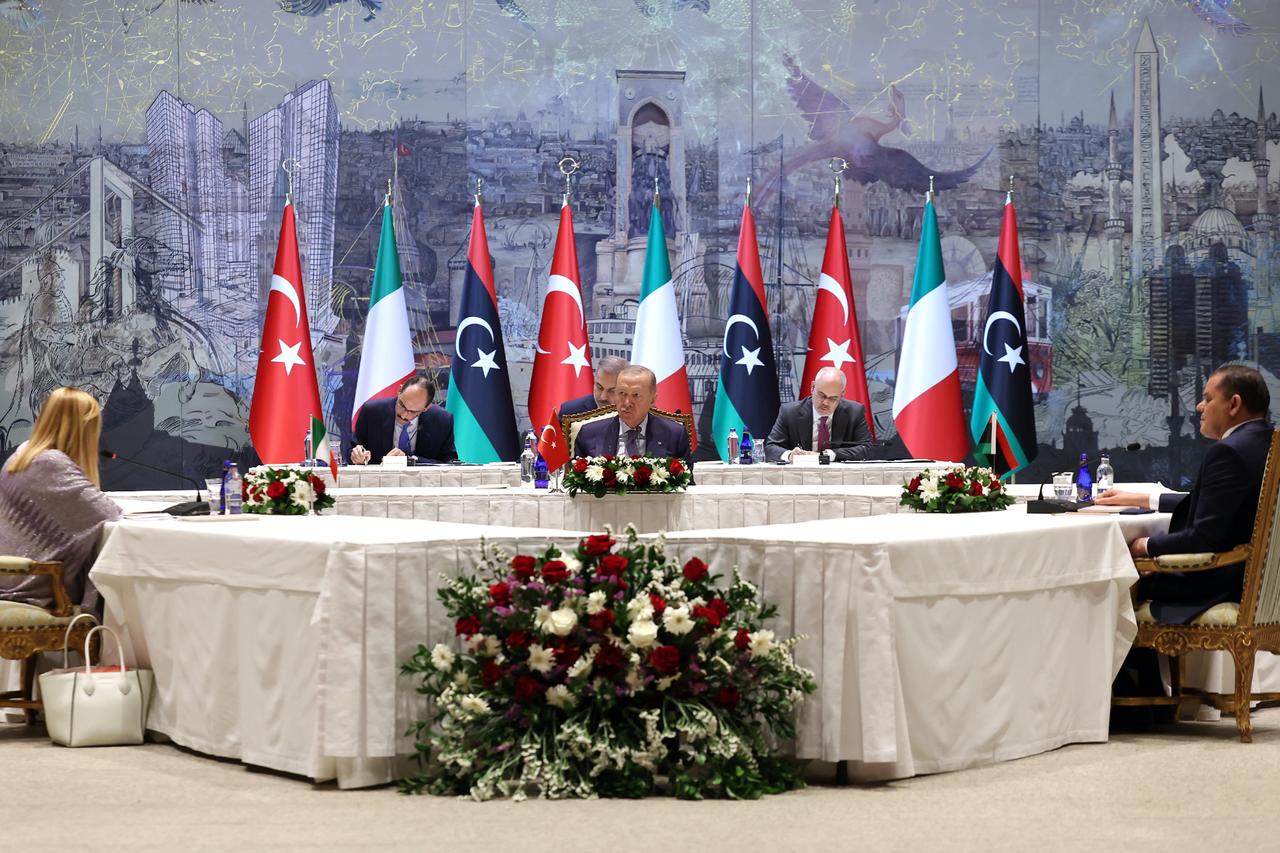
A high-level trilateral summit in Istanbul brought together the leaders of Türkiye, Italy, and Libya to address pressing regional challenges, including migration management, security coordination and energy cooperation. The meeting featured Turkish President Recep Tayyip Erdogan, Italian Prime Minister Giorgia Meloni, and Libyan Prime Minister Abdulhamid Dbeibeh.
The summit’s carefully arranged format, a triangular table flanked by senior advisers and security chiefs, reflected an equal, strategic partnership. Turkish officials such as the foreign minister, intelligence chief, and the president’s top security advisor were present, signaling the summit’s wide-ranging agenda beyond traditional diplomacy.
Migration continues to be a priority on the European agenda, particularly as political instability across the Sahel and North Africa drives increased flows toward the continent. Despite joint patrols and EU-funded border control efforts, Europe has struggled to contain irregular migration. The issue has periodically been instrumentalized by actors on both sides of the Mediterranean.
In Libya, reports have surfaced suggesting that the Tobruk-based government aligned with Khalifa Haftar may have facilitated crossings to gain leverage over Brussels. While not unprecedented, such tactics underscore Europe’s vulnerability and the limits of externalized border management.
The Turkish approach, grounded in pragmatic diplomacy and backed by its military presence and energy deals, is predicated on securing influence through stabilization rather than confrontation. Recent Turkish Petroleum Corporation (TPAO) agreements to explore in four Libyan zones demonstrate Ankara’s long-term investment in Libya’s future, regardless of temporary political setbacks or shifting alliances.
This strategy aligns closely with Italy’s evolving position under Prime Minister Giorgia Meloni. Much like the Trump administration’s thinking in the Middle East, Rome increasingly favors a single, centralized authority in Libya—one it can hold accountable—over the ambiguity and volatility of competing power centers. For both Ankara and Rome, order is preferable to fragmentation.
Yet migration, while urgent, is only part of the picture. The Istanbul meeting’s subtext points toward broader regional realignments in which Türkiye is positioning itself as an indispensable interlocutor between Europe, North Africa, and the broader Middle East.

The format and framing of the summit suggested that Ankara and Rome are aligning closely behind Libya’s UN-recognized government led by Abdulhamid Dbeibeh, reinforcing the message that their joint priority is a unified, stable Libya.
Next to the leaders, the inclusion of top intelligence and security officials pointed to the significance of military coordination, intelligence sharing, and political stabilization.
Meanwhile, a less visible but telling component of the trilateral dynamics is the intensifying defense-industrial cooperation between Türkiye and Italy. In recent months, Ankara’s drone manufacturer Baykar acquired one of Italy’s key aerospace companies. Separately, a Turkish firm based in Çorum has emerged as a major supplier of artillery shells to Italy in a deal fast-tracked by Rome, a process that typically requires high-level political clearance.
The transactions suggest a level of trust rarely extended to non-EU partners. Italian defense firms, notably Leonardo, are expected to pursue further collaboration with their Turkish counterparts, potentially positioning Turkish-engineered platforms as part of Europe's evolving air defense architecture.
On the Libyan front, Türkiye has emerged as one of the few external actors capable of engaging both the Tripoli-based Government of National Unity and factions in the east. Its intervention on behalf of the Tripoli government during Haftar’s 2019–2020 offensive played a pivotal role in altering the battlefield balance. But since then, Ankara has opted for a dual-track approach, engaging both camps while encouraging a negotiated political settlement.
This pragmatic engagement has allowed Türkiye to secure long-term energy and infrastructure deals while simultaneously improving its standing among European actors, who have grown weary of the prolonged stalemate in Libya. For Italy, whose energy company Eni is a major player in Libya, coordination with Ankara offers strategic value.

The Istanbul trilateral summit between Libya, Italy, and Turkey has not gone unnoticed in Athens. Greece’s main opposition party SYRIZA characterized the meeting as a “diplomatic defeat” for Prime Minister Mitsotakis, arguing that his government remains “a mere observer of developments, lacking a unifying national strategy and increasingly isolated on the international stage.”
In early July, a planned Greek diplomatic visit to Benghazi was quietly shelved, which was interpreted in Greek media as a sign of waning influence. Long seen as a cornerstone of EU Mediterranean policy, Greece now finds itself increasingly isolated as regional dynamics pivot.
Much of this isolation stems from the declining relevance of the Eastern Mediterranean Gas Forum and the collapse of the EastMed pipeline initiative, which once included Greece, Israel, Cyprus and Egypt as core stakeholders. With new energy corridors taking shape, including Turkish-Qatari cooperation through Syria and expanded Caspian-European links via Türkiye, Athens faces a more constrained policy environment.
Istanbul’s evolution into a hub for multilateral diplomacy has become increasingly evident. The city has more recently hosted sensitive negotiations and high-level political contacts from Ukrainian and Russian delegations to Horn of Africa peace talks and even visits by senior Armenian and Iranian officials.
Turkish foreign policy pursuits of a “bridge-builder” identity between polarized blocs, a role Ankara has leaned into amid global multipolarity and Western retrenchment.
Türkiye's ability to bring together actors from opposite ends of the geopolitical spectrum has added to its credibility as a regional convenor, unlike the times that it had been sidelined by its neighbors a few years ago.
Two conditions have enabled this convergence. First, European actors, especially Italy, have begun sidelining ideological objections in favor of pragmatic engagement with on-the-ground realities, chief among them, recognizing Türkiye’s indispensable role in Libya.
Second, a broader regional shift has occurred: countries across the Middle East are now more open to cooperation, and Turkish leadership has adapted accordingly, positioning itself as both a stabilizer and facilitator.